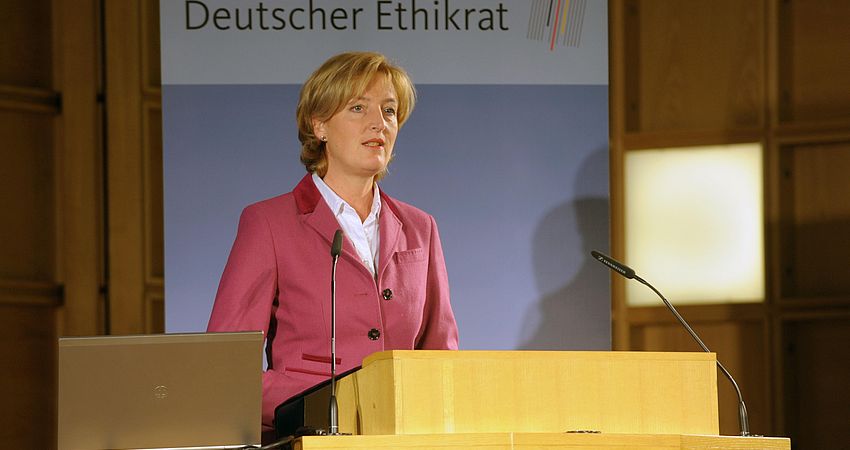Neuroimaging - Images of the Brain and the Image of Man

Prof. Dr. Christiane Woopen · Vorsitzende des Deutschen Ethikrates, Deutscher Ethikrat, Fotograf: Sepp Spiegl
Topic
The imaging methods of modern neuroscience contribute to the exploration of the manifold causes of human behaviour. They help to identify connections between brain structure, brain functions and our actions.
The insights gained affect our social interaction. They influence our view of humankind and raise ethical and legal questions. In addition, the measurements of brain scanners have to be interpreted in order to draw conclusions about a specific process in the brain or about a person’s actions. After all, human behaviour must always be seen in a social and cultural context.
The autumn conference of the German Ethics Council aims to clarify the status quo of modern brain imaging research between natural science, medicine, ethics, philosophy and law. This includes addressing the following questions:
- What can neuroimaging tell us about a person’s personality, character, experience and behaviour?
- Can neuroimaging help in diagnosing psychiatric disorders and assessing criminal offenders? How does this influence our understanding of guilt and punishment?
- What challenges in the field of medical ethics arise with regard to brain imaging research, e.g. due to unexpected findings or the prognosis of non-treatable diseases?
Through presentations from the fields of neuroscience, anthropology, medicine, ethics and law as well as various panel discussions on philosophical and practical aspects of the topic, the German Ethics Council, together with the invited speakers and the audience, discusses how recent developments in neuroimaging affect our self-conception and what new normative challenges need to be addressed.
